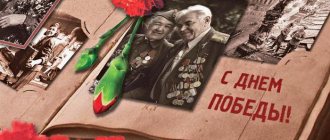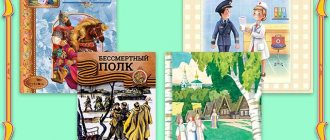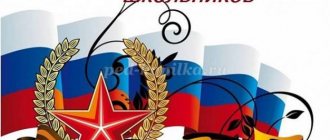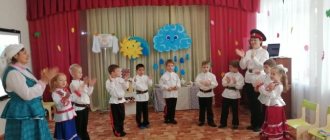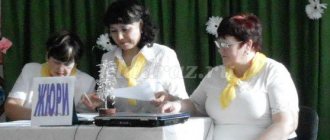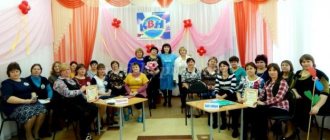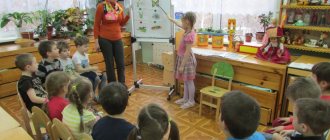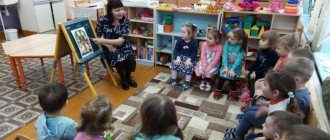Pedagogical council on the topic: “Spiritual and moral education of preschool children”
“Kindness must become the same
normal human condition
like thinking. She must
become a habit."
V.G. Sukhomlinsky
You have probably heard the phrase “out of the kindness of your heart” more than once. And more and more often one hears irony in it rather than generosity. The greatest danger of modern society, where material values prevail over spiritual ones, is the destruction of personality. We all want one thing, to protect our children from cruelty, indifference, and aggression. How to explain to a child that such qualities of the soul as mercy, generosity, kindness, compassion, love for one’s neighbor, which are characteristic only of humans, make us happier and kinder.
Education of morality begins with the formation of the concepts of good and bad, with awareness of one’s actions, both good and bad. How to explain to a child that every good deed is a particle of goodness invested in the world of kindness? It makes you feel warmer, brighter and more joyful, and every bad deed is a grain of evil, which makes you feel dark and scary. How can you help your child feel the need to contribute to the good and realize the responsibility for contributing to the bad?
The concept of good and bad for a child is an abstraction, because they cannot be touched or seen. How to bring these concepts to life? How to make it work? One of the main reasons for a child’s indifferent attitude towards others is a lack of understanding of other people’s emotions and experiences. As a rule, adults try to protect the baby from worries and negative emotions, fearing that they will negatively affect his mental health. As a result, the child does not learn to understand the people around him, sympathize with them, and empathize with them. The teacher’s task is to see what is hidden in the souls of children, and help them cope with their emotions and experiences, and teach them to feel the people around them.
Children see reality in their own way; they judge their own actions and the actions of others, based on their still limited life experience. Therefore, the teacher needs to skillfully and unobtrusively teach the child to correctly perceive and evaluate life situations. Working with children, we never cease to develop self-care skills; for this we read them poems and fairy tales, such as “Masha the Confused Man”, “The Incompetent”, and discuss current situations. Good relationships with people and peers help to develop role-playing games, where the children themselves play the leading role. For example, the game “Home”, “Come to us for tea”, “Doll Katya is sick”, etc. During the game, humane feelings are brought up, caring for the doll as a bearer of human qualities, they teach children to be polite.
We created a card index “Polite Fairy Tales”, in which the heroes are our familiar animals who help each other. At a young age, children perceive polite words as something formal and optional. Therefore, it is important to develop the habit of constantly saying “hello”, “thank you”, “goodbye”. The best helpers in this situation are the heroes of your favorite books, as well as examples of adults.
During activities and games, we often include elements of motivation, i.e. the presence of a third party. It could be Carlson, who accidentally dropped into our kindergarten to play with the children, a bear cub, a bunny who ran away from the wolf, or we create and together solve problem situations such as “The dog is lost,” “Why is the bunny crying,” “Kolobok” who needs to be saved from the fox,” etc. We draw a cheerful face on the ball and pass it around, not forgetting to praise our little bun and say warm, kind words to him.
In the daily life of the group, we often use good poems, quatrains, such as “it’s you, and it’s me, you’re good to me, my gift is dear, and I don’t need another!” When putting the child to bed, we recite nursery rhymes and jokes; we use them when waking up children, during water procedures, before sitting down at the table, in any situation. Folk wisdom has always taught us only good things.
From the first years of their lives, children are familiar with the works of A. Barto “Bull”, “Bunny”, “Bear”, “Our Tanya”, the heroes of which cannot help but sympathize and want to help. These simple poems teach humanity, a caring attitude, and when you watch how a girl rocks a doll, holding it close to her, or how little fingers painstakingly help glue a book that has been read to holes, you understand that kindness will save the world!
It is not easy to penetrate into the inner world of a child, understand him and come to mutual understanding. It’s not easy for parents, and even harder for teachers. To solve this difficult problem, the adult tries to stretch a thin spiritual thread that would connect him with the child. The main thing is to try to maintain this connection and not let it break!
Bibliography:
Preschool education No. 09.2007
Pedagogical Council "System of work of preschool educational institutions with children on issues of patriotic education according to the Federal State Educational Standard for Preschool Education"
Patriotism is devotion and love for the Motherland, its nature, culture, and people.
Kindergarten is a place where a child gains experience of broad emotional and practical interaction with adults and peers in the most significant areas of life for his development. By directing the activities of children, we, educators, form such important traits for a Russian person as love for their native land, the Motherland, the Russian Army, history, and respect for people of other nationalities. We introduce children to symbols of the state, historical figures, and develop interest in Russian traditions.
For a preschooler, love for the Motherland begins with the relationship with the closest people - father, mother, grandmother, grandfather, with love for his home, the street on which the child lives, kindergarten. We try to teach all this to a child from a very young age.
The system of work on patriotic education in our preschool educational institution includes 3 areas : Familiarization with objects of the immediate environment :
- Fostering respect for working people and folk art; — Fostering respect for working people and the objects they produce. To introduce people who have glorified Russia; -Cultivating a sense of friendship towards people of other nationalities;
Familiarization with the phenomena of social life.
— Fostering a sense of belonging to the life of the country (patriotic dates and holidays);
-Thrifty attitude towards what is made by people;
— Fostering love for the native land, for the Motherland (idea of the country, cities, capital, symbols of the state;
— Acquaintance with the sights of the city, architectural monuments, and the names of streets named after famous people
— Acquaintance with the events taking place in the country, expanding ideas about the country, the capital, and the symbols of the state;
Getting to know nature.
- Fostering love for the nature of the native land;
- Fostering a caring attitude towards native nature;
-Cultivating a sense of the need for labor participation in the protection of native nature.
Patriotic education is implemented in our kindergarten through such forms
how to: create a developmental environment for civic and patriotic education; thematic classes; conversations about the Motherland, about the native city, about the nature of the native land, about good people, reading children's books on patriotic themes, an appropriate selection of songs and poems for learning, watching films, television programs for children; interaction with parents; interaction with society..
Speaking about the education of citizenship and patriotism, we must first of all take care that the little person becomes a “Man” with a capital “H”. So that he could distinguish bad from good, his aspirations and desires were aimed at creation, self-determination and development in himself of those qualities and values, thanks to which we will firmly say about him in the future - he is a true patriot and citizen of his Motherland. From June to November, we held a sufficient number of interesting events at the preschool educational institution:
